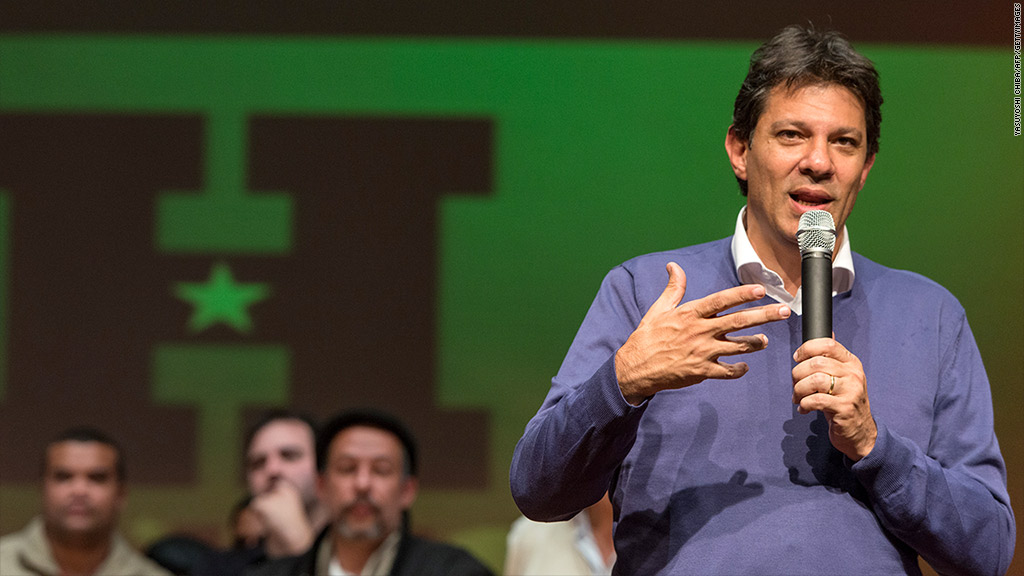
Politicians make endless promises on the campaign trail.
A new app launching in Brazil called Promise Tracker aims to keep them honest.
If a politician promised to fix a city's streets, for instance, a citizen could go to the Promise Tracker website and create a survey asking fellow citizens about road conditions. Respondents could use the mobile app to take photos of potholes and to map their location with GPS technology.
The idea behind Promise Tracker is that your civic duty hasn't been fulfilled once you've hit the ballot box -- it's just begun.
"With democracy, we're really good at mobilizing people to get out and vote for elections, but there's a huge drop off in engagement after the elections are over," said Rahul Bhargava, research specialist at MIT's Center for Civic Media and project manager of Promise Tracker.
Related: 5 apps to help change the world
The project is the brainchild of Ethan Zuckerman, director of MIT's Civic Media Center.
He's been carrying out experiments using mobile phones to transform citizens from merely informed to active monitors.
Promise Tracker will be piloted this fall in the Brazilian cities of São Paulo and Belo Horizonte. São Paulo is the perfect city to test out Promise Tracker -- it was the first city in Brazil to pass a law that mandates that its mayors list and publish campaign promises and term objectives within 90 days of taking office.
Dozens of other Brazilian cities have followed suit.
Promise Tracker will be put in the hands of the 1,150 counselors tasked with monitoring the progress of each pledge.
Rede Nossa São Paulo (Our São Paulo Network), a network of over 700 organizations working to promote sustainable development in the city, was behind the push for the legislation and will be a part of Promise Tracker's monitoring of São Paulo Mayor Fernando Haddad.
Related: Rising middle class fuels Brazil's protests
Oded Grajew, founder of Rede Nossa São Paulo, says that previously, voting for elected officials in the country had been more based on candidates kissing babies than their track records.
"In Brazil, as in other countries, politicians are in the service of those who fund their campaigns," said Grajew. "This is no good for development, fixing inequality or improving public services, which are very bad here."
Promise Tracker has already generated interest from other countries and the MIT team plans to create a web and mobile app system that cities around the world can customize according to their needs.
"Our goal is not to criticize the government, but rather provide residents and politicians with the proper tools to understand the local context, make informed decisions, and transform their cities into better spaces for all," said Leo Burd, a São Paulo native and consultant for MIT on the Promise Tracker project.

